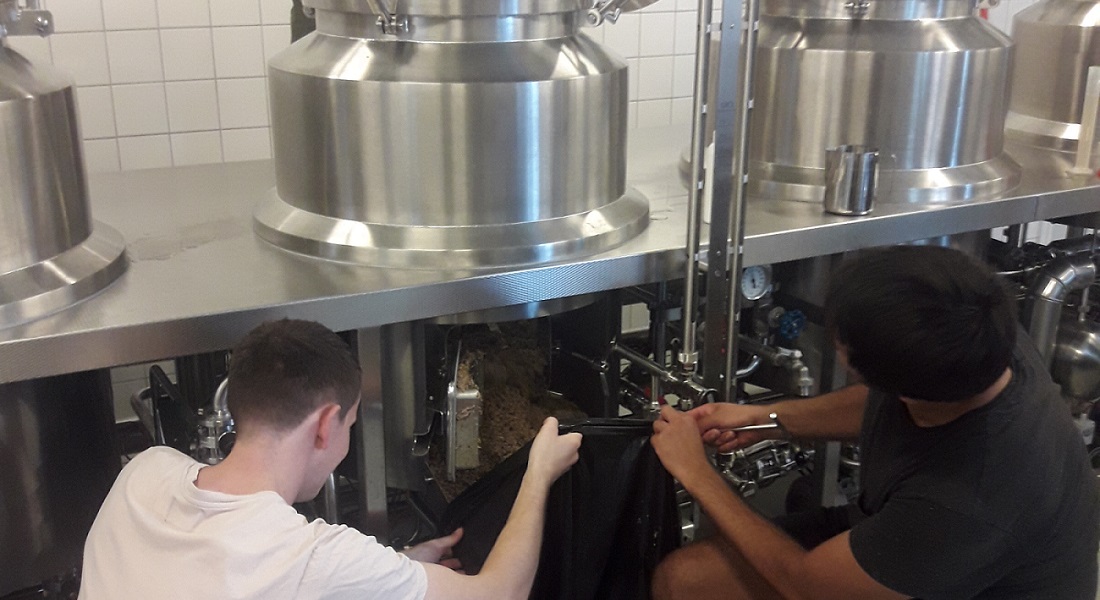Students develop beer with an umami taste in the brewery at the University of Copenhagen
Students from Beverage Forum recently gathered to test methods for making beer with an umami taste in the research brewery (R.E.Brew) at the University of Copenhagen (FOOD). It gave them the opportunity to try their hand at brewing and work with different equipment in the brewery so that they can brew for other projects in the future.

By student assistant Simone Kristensen
Beverage Forum is an organisation for students at the University of Copenhagen that arranges events and creates new brewing projects.
In 2019, UCPH invested in a high-quality brewery, which is used to teach students, particularly those in beer science, and for research collaborations with companies. The research brewery, located at the Department of Food Science on Frederiksberg Campus, is smaller than a typical microbrewery, but it is constructed with a design and process control mimicking large scale breweries. It allows students to test recipes they have developed, with realistic processes that are very similar to that of the brewing industry. It is often a big challenge when you go from brewing in very small volumes to larger volumes, but the idea behind the pilot plant is precisely that it should make the transition simpler and allow realistic development of new products and methods.
The concept that the students from Beverage Forum came up with was to add a dashi, made from Dulse seaweed from Iceland, to a beer to produce an umami taste that would pair the beer well with maritime dishes with, for example, oysters. The theory was that the high glutamate content of the seaweed would match the phenolic flavours commonly found in a saison beer (a style of Belgian beer).
“It is always exciting to add new ingredients you do not normally find in beer, as something completely new can come out of it. It was also a challenge to determine how much seaweed you can add to the beer, without it ending up tasting like seawater. We received expert guidance on choosing seaweed from Professor Ole G. Mouritsen, who has written books on seaweed. The choice fell on Dulse seaweed due to its high glutamate content, which provides an umami taste,” explained Sebastian, Oscar and Frederik, who participated in the brewing, by email.
“Specifically, on the day we started in the morning and helped with practical things during the brewing. We regulated temperatures, turned valves and added the ingredients, all the while discussing processes and brewing theory with the pilot plant manager. It was very educational in a fun way,” they wrote.
The facilities in the brewery mean that the students can test the theory in practice and it allows them to hone their knowledge and skills on a state-of-the-art research brewery that functions like a large scale brewery in the industry.
The Beverage Forum, beer enthusiasts from different parts of the university and management at FOOD meet monthly to discuss and plan test of innovative ideas. It does not have to be related to studies, but can also be done in the spare time.
Topics
Related News
Contact
Pilot Plant manager Sylvain Barjon, Department of Food Science at University of Copenhagen (UCPH FOOD), sylvain@food.ku.dk
or
Communications officer Lene Hundborg Koss, UCPH FOOD, lene.h.koss@food.ku.dk
